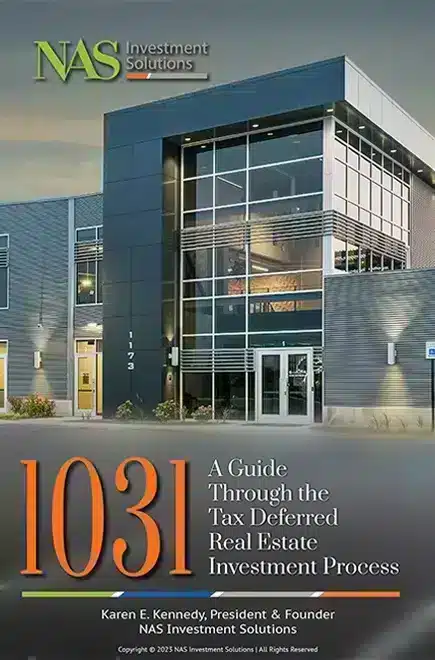DST Properties and the Investment Advantages
DST Properties (A Delaware Statutory Trusts) — are true passive commercial real estate investments that may be optimal for you and your family. But first, what is a DST? It’s not exclusive to the state of Delaware. In 1988, Common Law legalized statutory trusts through the Delaware Statutory Trust Act. But it wasn’t until 2004, when the IRS and State Treasury Department, made it clear that DSTs are legal entities with an unlimited number of investors involved in a single investment. (Some sponsors will cap at 100 investors) True to its inceptive beliefs, the act allowed freedom from simply being an act within corporate law and gave abilities that allowed investors to create a plan that is most beneficial to their investment. One example of this flexibility, being, its eligibility to be used in a 1031 exchange. Download FREE Guide: The ABCs of DSTs.
In this article we will discuss: The advantages of investing in DST properties; Importance of comprehensive due diligence; importance of a credible sponsor.
“DST properties allow investors to own a piece of prime commercial property that may not otherwise be attainable.”
First, let’s address the scenario in which you would consider a passive investment. Say you are tired of having your life and leisure time committed to property management responsibilities. A passive investment is the kind of investment many look to in their later years of investing. Investors suddenly have more time for travel and other activities that may have taken a backseat previously. This is because with DST properties, a professional asset and property management company is responsible for the daily overview of the property and operational decisions and strategic decisions which are time sensitive.
As previously mentioned, this kind of passive investment is also eligible as a like-kind, 1031 exchange property. In the event of a tax deferred exchange, investors can qualify shares as replacement property to defer taxes which are otherwise due on their capital gains. And that’s just one benefit of DST properties. The benefits of a DST we have already addressed is the newfound leisure time that accompanies complete passive investments and tax deferral on capital gains in the event of a tax deferred exchange.
Another way a DST property investment can take off a load of stress is this – the sponsor negotiates the loan on behalf of the investors directly without the hassle of each individual investor needing to qualify for the loan. This is a non-recourse note and the guarantees required by the lender are solely in the name of the sponsor, not the individual investors. Also, in a DST structure there can never, ever be a cash call to investors. NEVER!
That being said, it is imperative that investors select an experienced and trustworthy property investment sponsor whose values are aligned with that of the investor. In order for the property to be successful, you need a credible sponsor who understands real estate in all facets starting with comprehensive due diligence. Even the verbiage, comprehensive due diligence, should raise some eyebrows. Due diligence should be inherently comprehensive. After the Securities Act of 1933, securities dealers and brokers became responsible for full transparency relating to the product they were selling. In the case of property investment, dealers and brokers became responsible for disclosing any information about the property, even if the information could seem unattractive or risky for the investor. Failure to comply with full transparency could result in criminal prosecution.
Those who wrote the act recognized that information can fall through the cracks and ignorance shouldn’t place people behind bars. So, the Securities Act of 1933 included a clause which stated so long as the dealers and brokers exercised “due diligence” when investigating properties or companies they were selling, and remained transparent during the disclosure, they would not be held accountable for evidence that was not found during the initial investigation.
Although, due diligence shouldn’t be exclusive to one person. Each investor, along with a trusted, licensed real estate professional or attorney should exercise their due diligence before stepping into the passive investment. Conducting research on the property, its location and its investment fundamentals are just a few ways investors can practice due diligence.
A sponsor is also necessary in the chain of acquiring the investment property, considering they are obligated to share any possible risk in an investment. In order for a sponsor to be credible, they must exercise leadership in locating, buying, and operating profitable commercial real estate assets for investors.
DST properties are investments that can open doors for accredited investors looking for a long-term passive commercial property investment solutions. Passive investments are an excellent way to have an interest in commercial property without the full-time commitment of property ownership. In a DST-structured property, operational decisions are left to a professional management company; the core benefit of a passive income investment. As with all commercial property investments, it is prudent for an investor to perform thorough due diligence on the investment’s fundamentals as well as the track record of the investment sponsor.









